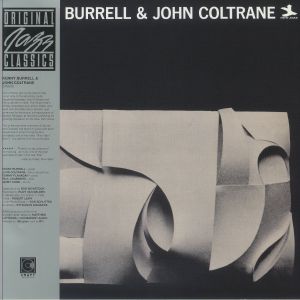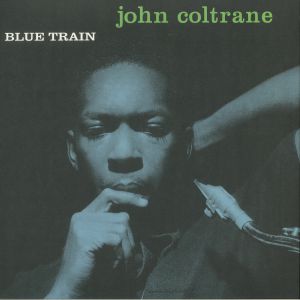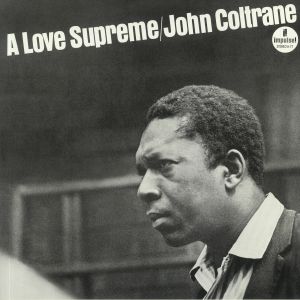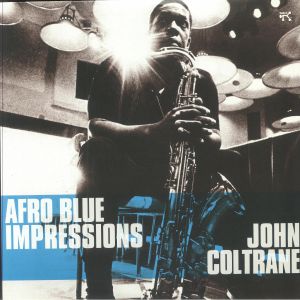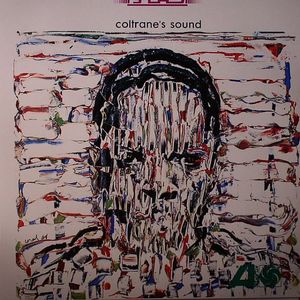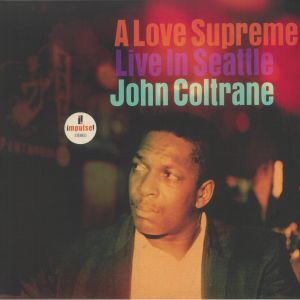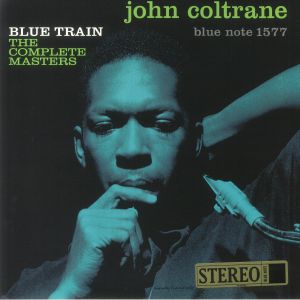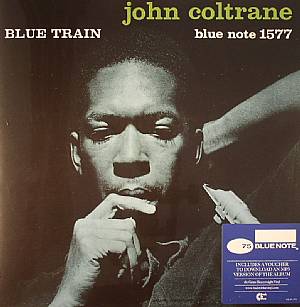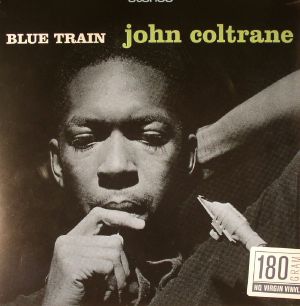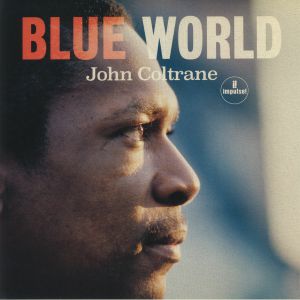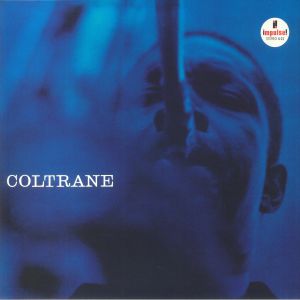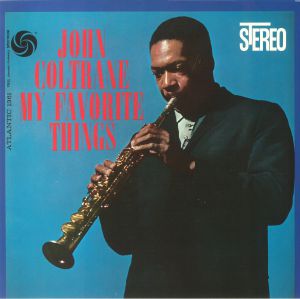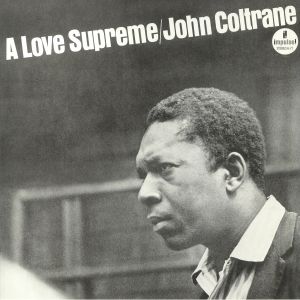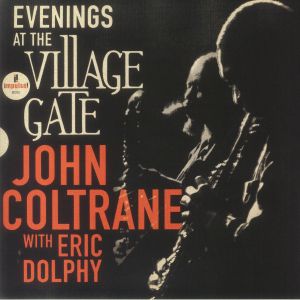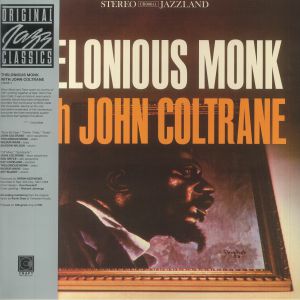Filter
Stock
Type
Music
Format
Featured
Release Title
Price
Back catalogue: Jazz
Juno's full catalogue of Jazz
Álbumes
Kenny Burrell & John Coltrane (Original Jazz Classics Series) (180 gram vinyl LP with obi-strip)
Cat: CR 720. Rel: 06 Jun 24
Review: Part of the Original Jazz Classics Series, this 1963 album from the great Kenny Burrell and John Coltrane is now reissued on 180-gram vinyl. Featuring Burrell and Coltrane, along with Tommy Flanagan, Paul Chambers, and Jimmy Cobb, the album comprises five tracks that have been remastered from the original tapes by Kevin Gray at Cohearent Audio. It's an absorbing journey into two genius creative minds and comes comes in a Tip-On Jacket, preserving the essence of the original release while offering enhanced sound quality for contemporary listeners.
… Read moreIntérprete: Juno Recommends Jazz
in stock $35.55
Intérprete: Juno Recommends Jazz
in stock $13.62
A Love Supreme (Acoustic Sounds Series Audiophile Edition) (gatefold 180 gram audiophile vinyl LP)
Cat: 888928. Rel: 09 Oct 20
Intérprete: Juno Recommends Jazz
in stock $43.90
Review: The recordings that make up Afro Blue Impressions were acquired by jazz impresario and auteur Norman Granz, during the tours he produced for many jazz artists during the 1960s, though they weren't issued until 1973. Recorded at shows in Berlin and Stockholm, the John Coltrane Quartet - comprising pianist McCoy Tyner, bassist Jimmy Garrison, and drummer Elvin Jones - is in tremendous form here, using a familiar repertoire in order to expand upon the group's own building blocks in creating the new post-harmonic system that the saxophonist was developing at the time. Reissued on vinyl by Craft Recordings, this one comes released as part of the Craft Jazz Essentials series.
… Read moreIntérprete: Juno Recommends Jazz
in stock $28.62
Both Directions At Once: The Lost Album (gatefold 2xLP in die-cut sleeve)
Cat: 674930 1. Rel: 29 Jun 18
Review: Jazz fans take note: Both Directions at Once: The Lost Album more than lives up to its name. It features previously unreleased recordings by the late, great John Coltrane and his regular accompanying players (pianist McCoy Tyner, bassist Jimmy Garrison and Drummer Elvin Jones). The reels of tape the tracks were salvaged from were dated 1963, around the time that the quartet laid down some of its most forward-thinking work for the legendary Impulse label. Much of the material consists of original Coltrane compilations, though there are a few notable covers (including a great version of jazz standard "Nature Boy") dotted throughout. As you'd expect, Coltrane's performance is incredible from start to finish.
… Read more in stock $40.57
Intérprete: Juno Recommends Jazz
in stock $32.78
A Love Supreme: Live In Seattle (limited gatefold 2xLP + booklet)
Cat: 384999 8. Rel: 22 Oct 21
Review: Of all his many albums and live shows, A Love Supreme: Live In Seattle is often said by fans to be one Coltrane's greatest works. Until recently, this was a long lost performance from the iconic saxophonist. Recorded in 1964, it is only the second full live performance recording known after one from the Festival Mondial du Jazz Antibes in France from 1965. The quartet for the original recording of one was made up of McCoy Tyner, Jimmy Garrison and Elvin Jones next to Coltrane himself, but this recording was boosted by Pharoah Sanders on tenor sax and Donald Garrett on second bass. It's a suite packed with spirit, power and soul.
… Read moreIntérprete: Juno Recommends Jazz
in stock $18.88
Blue Train: The Complete Masters (Tone Poet Series) (gatefold 180 gram audiophile vinyl 2xLP + booklet)
Cat: 454810 7. Rel: 16 Sep 22
Review: There are few jazz albums as universally adored and significant as Blue Train. That's no exaggerated remark - it's a record imprinted on 20th Century culture, albeit just one of Coltrane's many incredible works. As part of their continued Tone Poets series, Blue Note are revisiting this landmark and giving it a grand presentation under the banner of The Complete Masters. That means, as well as the official recordings that make up Blue Train, we're also treated to a second disc of additional takes which give you a whole new perspective on these eternal treasures, from a false start of 'Blue Train' to multiple takes on 'Moment's Notice' and 'Lazy Bird'.
… Read moreIntérprete: Juno Recommends Jazz
in stock $65.85
Intérprete: Juno Recommends Jazz, DJ ROCCA
in stock $26.39
Intérprete: Juno Recommends Jazz
in stock $14.44
Review: Blue World is an album that was never intended for release. It features music commissioned for a soundtrack for a Canadian film in 1964 and showcases a quartet that was at its very best. It's made up of short tracks and alternate takes of early Coltrane material and is utterly vibrant. Catchy little ditties like "Village Blues", stripped down numbers like the title track and the mostly-improvised "Traneing In" are all testament to the enduring brilliance of Coltrane, no matter the setting in which he was playing. The clarity of the recording and richness of the bass playing also add to the overall beauty of this record.
… Read moreIntérprete: Juno Recommends Jazz
in stock $25.00
Intérprete: Juno Recommends Jazz
in stock $30.28
My Favorite Things (Deluxe Edition) (180 gram vinyl 2xLP + booklet + insert)
Cat: 060349 7842827. Rel: 20 May 22
Review: The Sound Of Music had a long-lasting impact, and one of its cornerstones was 'My Favourite Things', later covered by trumpeter-visionary John Coltrane. Coltrane's version - the lead track from the album of the same name - helped cement the song's cultural standing, topping the charts in several countries. Three other tracks appear on the album in mono; Cole Porter's 'Ev'ry Time We Say Goodbye', and two standards from the Gershwin twins on the B side. This new reissue by Rhino, however, has both stereo and mono, along with new liner notes: we're blown away by this light-hearted trumpet masterpiece.
… Read moreIntérprete: Juno Recommends Jazz
in stock $36.95
Review: It goes without saying that 'A Love Supreme' is in the upper echelons of jazz history. A spiritual and emotional proclamation from American jazz saxophonist John Coltrane, the 32 minute runtime is a narrative of strife and struggle with addiction as well as the notable repetition of his riff in all 12 keys throughout the session in 'Acknowledgement'. In many ways you could say Coltrane's playing wasn't improvised at all, and you could argue that the session was better off for it. At the end of the half an hour, the narrative unwinds and Coltrane is declaring a faith to God, a musical thankyou to his faith that kept him true throughout his trials following a spiritual awakening in 1957 - what resulted was an undisputed musical masterpiece.
… Read moreIntérprete: Juno Recommends Jazz
in stock $29.99
John COLTRANE with ERIC DOLPHY
Evenings At The Village Gate (mono) (limited gatefold 2xLP + booklet)
Cat: 555141 9. Rel: 13 Jul 23
Review: In August 1961, John Coltrane and his legendary Quintet, joined by visionary multi-instrumentalist Eric Dolphy, played the revered Village Gate in Greenwich Village, New York, not, at that time, as established as it would soon become. This special new double album features over an hour and a half of music that has never before been heard, including well-known Coltrane classics such as 'My Favorite Things' and 'Greensleeves' as well as the only known non-studio recording of Coltrane's 'Africa' from his Africa/Bass album. The record then marks a historic moment in Coltrane's career.
… Read moreIntérprete: Juno Recommends Jazz
in stock $25.00
Thelonious Monk With John Coltrane (180 gram vinyl LP with obi-strip)
Cat: CR 00611. Rel: 25 May 23
Review: As part of the newly relaunched Original Jazz Classics Series, Kevin Gray at Cohearent Audio has remastered this seminal jazz record from Thelonius Monk and John Coltrane from the original tapes and in all analog fashion. It's a deserving treatment for what many believe to be one of the great ever collaborative jazz records. As well as those two legendary players and jazz innovators, further greats joined in the recording sessions including Art Blakey on the drums, Wilbur Ware on bass, and alto sax from Gigi Gryce. What a piece of history it is too.
… Read moreIntérprete: Juno Recommends Jazz
in stock $51.39

 USD
USD






